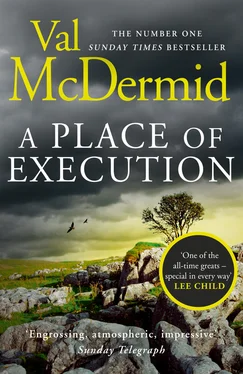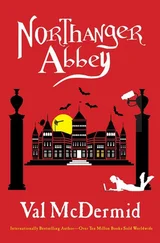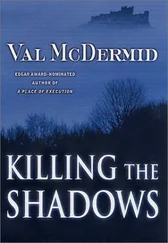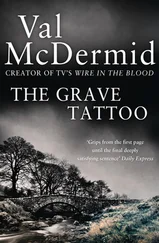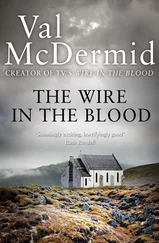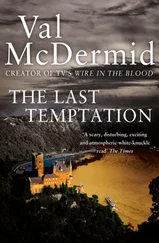Some of what happened on that terrible December night in 1963 will of course never be known. But for everyone who has ever been touched, however remotely, by Alison Carter’s life and death, George Bennett’s story is a fascinating insight into one of the most heartless crimes of the 1960s.
For too long, it has remained hidden in the shadow of the understandably more notorious Moors Murders. But Alison Carter’s fate is no less terrible for coming at the hands of a killer who had but a single victim. And the message of her death is still as important today. If Alison Carter’s story tells us one thing, it is that even the gravest of dangers can wear a friendly face.
Nothing can bring Alison Carter back. But reminding the world of what happened to her might prevent others coming to harm. If this book achieves that, both George Bennett and I will feel some satisfaction.
Catherine Heathcote Longnor, 1998
The girl was saying goodbye to her life. And it was no easy farewell.
Like any teenager, she’d always found plenty to complain about. But now that she was about to lose it, this life suddenly seemed very desirable. Now at last she began to understand why her elderly relatives clung so tenaciously to every precious moment, even if it was riven with pain. However bad this life was, the alternative was infinitely worse.
She had even begun to regret things. All the times she’d wished her mother dead; all the times she’d wished that her dream of being a changeling would come true; all the hate she’d expended on the children at school who had called her names for not being one of them; all the fervent longings to be grown up, with these miseries behind her. It all seemed irrelevant now. The only thing that mattered was the uniquely valuable life she was about to lose.
She felt fear, inevitably. Fear of what lay beyond as well as what lay immediately ahead. She’d been brought up to believe in heaven and in its necessary counterweight, hell, the equal and opposite force that held things stable. She had her own very clear ideas of what heaven would be. More than she had ever hoped anything in her short life, she hoped that that was what lay in wait for her, so terrifyingly close now.
But she was desperately afraid that what she was going to was hell. She wasn’t so clear about what hell would consist of. She just knew that, compared to everything she’d hated about her life, it would be worse. And given what she knew, that meant it was going to be very bad indeed.
Nevertheless, there was no other possible choice for her. The girl had to say goodbye to her life.
For ever.
PART ONE The Early Stages

Manchester Evening News,
Tuesday, 10 thDecember 1963, p. 3
£100 reward in boy hunt
Police continued to hunt for 12-year-old John Kilbride today – and hoped that a £100 reward might produce a new lead.
For a local managing director has offered £100 to anyone who gives information which leads directly to the discovery of John who vanished from his home in Smallshaw Lane, Ashton-under-Lyne 18 days ago.
Wednesday, 11 thDecember 1963. 7.53 p.m.
‘Help me. You’ve got to help me.’ The woman’s voice quavered on the edge of tears. The duty constable who had picked up the phone heard a hiccuping gulp, as if the caller was struggling to speak.
‘That’s what we’re here for, madam,’ PC Ron Swindells said stolidly. He’d worked in Buxton man and boy for the best part of fifteen years and for the last five, he’d found it hard to shake off a sense that he was reliving the first ten. There was, he reckoned, nothing new under the sun. It was a view that would be irrevocably shattered by the events that were about to unfold around him, but for the moment, he was content to trot out the formula that had served him well until now. ‘What seems to be the problem?’ he asked, his rich bass voice gently impersonal.
‘Alison,’ the woman gasped. ‘My Alison’s not come home.’
‘Alison’s your lass, is she?’ PC Swindells asked, his voice deliberately calm, attempting to reassure the woman.
‘She went straight out with the dog when she came in after school. And she’s not come home.’ The sharp edge of hysteria forced the woman’s voice higher.
Swindells glanced automatically at the clock. Seven minutes before eight. The woman was right to be worried. The girl must have been out of the house near on four hours, and that was no joke at this time of year. ‘Could she have gone to visit friends, on the spur of the moment, like?’ he asked, knowing already that would have been her first port of call before she lifted the telephone.
‘I’ve knocked every door in the village. She’s missing, I’m telling you. Something’s happened to my Alison.’ Now the woman was breaking down, her words choking out in the intervals between sobs. Swindells thought he heard the rumble of another voice in the background.
Village, the woman had said. ‘Where exactly are you calling from, madam?’ he asked.
There was the sound of muffled conversation, then a clear masculine voice came on the line, the unmistakable southern accent brisk with authority. ‘This is Philip Hawkin from the manor house in Scardale,’ he said.
‘I see, sir,’ Swindells said cautiously. While the information didn’t exactly change anything, it did make the policeman slightly wary, conscious that Scardale was off his beat in more ways than the obvious. Scardale wasn’t just a different world from the bustling market town where Swindells lived and worked; it had the reputation of being a law unto itself. For such a call to come from Scardale, something well out of the ordinary must have happened.
The caller’s voice dropped in pitch, giving the impression that he was talking man to man with Swindells. ‘You must excuse my wife. She’s rather upset. So emotional, women, don’t you find? Look, Officer, I’m sure no harm has come to Alison, but my wife insisted on giving you a call. I’m sure she’ll turn up any minute now, and the last thing I want is to waste your time.’
‘If you’ll just give me some details, sir,’ the stolid Swindells said, pulling his pad closer to him.
Detective Inspector George Bennett should have been at home long since. It was almost eight o’clock, well beyond the hour when senior detectives were expected to be at their desks. By rights, he should have been in his armchair stretching his long legs in front of a blazing coal fire, dinner inside him and Coronation Street on the television opposite. Then, while Anne cleared away the dishes and washed up, he’d nip out for a pint and a chat in the lounge bar of the Duke of York or the Baker’s Arms. There was no quicker way to get the feel of a place than through bar-room conversation. And he needed that head start more than any of his colleagues, being an incomer of less than six months’ standing. He knew the locals didn’t trust him with much of their gossip, but gradually, they were beginning to treat him like part of the furniture, forgiving and forgetting that his father and grandfather had supped in a different part of the shire.
He glanced at his watch. He’d be lucky to get to the pub tonight. Not that he counted that a great hardship. George wasn’t a drinking man. If he hadn’t been obliged by his professional responsibilities to keep his finger firmly on the pulse of the town, he wouldn’t have entered a pub from one week to the next. He’d much rather have taken Anne dancing to one of the new beat groups that regularly played at the Pavilion Gardens, or to the Opera House to see a film. Or simply stayed at home. Three months married, and George still couldn’t quite believe Anne had agreed to spend the rest of her life with him. It was a miracle that sustained him through the worst times in the job. So far, those had come from tedium rather than the heinous nature of the crimes he encountered. The events of the coming seven months would put that miracle to a tougher test.
Читать дальше
